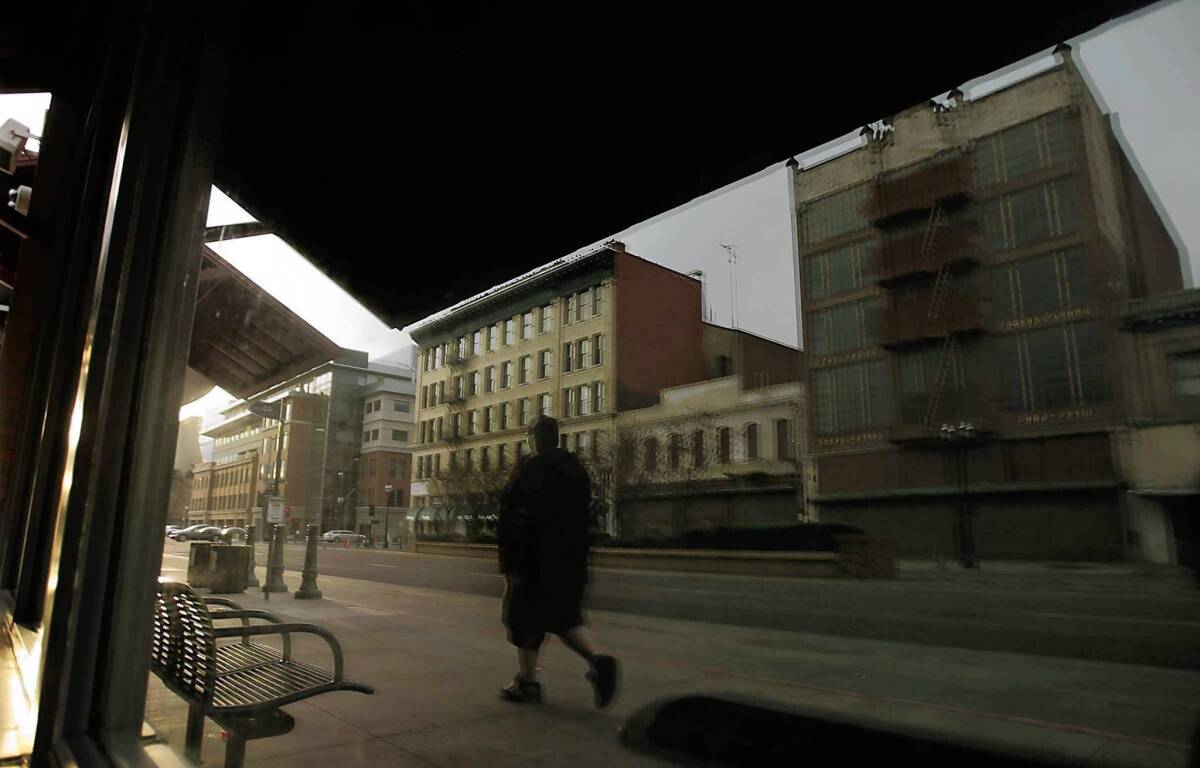Who lost Stockton?

Let’s please resist the temptation to feel smug about Stockton. California’s great inland river-port city and Central Valley agricultural hub filed for Chapter 9 bankruptcy protection Wednesday after a series of bad bets and a run of bad luck.
No doubt observers in other cities and states, and from various spots in the political spectrum, will be ready with pointing fingers and easy ideologically-based explanations: It was greedy public workers and their unions who brought us to this point. It was greedy Wall Street bankers and their outsize clout over municipal bonds. It was corrupt politicians, over-regulation of business, the Republicans, the Democrats, conservatives, liberals, social spending, capitalism, delusions of grandeur, failures of imagination.
There will be, we hope, answers and lessons, and chastened city halls up and down the state should keep the unfortunate example of Stockton and its precursor, Vallejo, in mind as they make pension decisions and market bonds for economic development projects. But the lessons won’t change one underlying fact: Stockton went bankrupt at least in part because a historic nationwide mortgage meltdown and worldwide economic implosion occurred at just the wrong time.
If a city fails to invest sufficiently in public safety, it may find itself struggling with crime, unable to keep home property values up or to attract business, and thus unable to support decent schools — and public safety. They knew that in Stockton, which has suffered more than its share of gang and drug-related crime, and they invested. But the promises made to public retirees — especially to cover skyrocketing medical costs — could no longer be supported by the tax base when the housing market tanked.
Fail to build the economic infrastructure with publicly spurred development projects like hotels and promenades, and visitors will go elsewhere, taking their dollars with them. Isn’t that what ideological scolds argue? Cities must act more like private businesses. They must compete for customers. But that involves the very business-like practice of taking risks with other people’s money. And, now, the very business-like practice of filing for bankruptcy when things don’t work out.
The difference, of course, is that executives of bankrupt municipalities don’t get to pick up the pieces and go build some new city somewhere else. They must cut services just when support for laid-off employees is most needed.
The work of running a city is tough even in good times and requires skill, experience and a sense of duty. In times of economic stress, it requires all of that plus a pretty good spate of luck as well.
More to Read
A cure for the common opinion
Get thought-provoking perspectives with our weekly newsletter.
You may occasionally receive promotional content from the Los Angeles Times.










